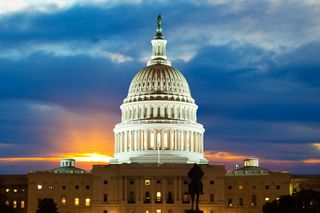White House backs Oracle over Google in Java dispute
Oracle is in line for a $1 billion pay out over Google’s use of Java code in the Android operating system

The White House believes Google owes Oracle damages over the use of Java code in the Android mobile operating system.
Oracle is demanding $1 billion (652 million) in damages over Google's use of Java to build the open source OS, maintaining that the search giant did not ask for permission to use its APIs.
Google successfully argued APIs cannot be copyrighted in a district court case in 2012, after Oracle first brought the case against it in 2010, but that ruling was overturned last summer.
An appeals court judge ruled Oracle could apply copyright to parts of Java, a coding language it acquired in the mid-1990s, until told otherwise by the Supreme Court or Congress.
Google is now appealing to the Supreme Court, arguing that granting Oracle victory would obstruct "an enormous amount of innovation", but the Obama administration appears to back Oracle, after being asked for its opinion by the Supreme Court, which asks the government for its view in cases of far-reaching consequences.
US Solicitor General Donald Verrilli, in a court filing yesterday, disagreed with Google's argument that code does not deserve copyright protection, but admitted the company had raised important points about the consequences of the ruling for software development, according to Reuters.
However, he said those issues could be examined in a separate case detailing Google's fair use defence for using Java code in Android.
Get the ITPro. daily newsletter
Receive our latest news, industry updates, featured resources and more. Sign up today to receive our FREE report on AI cyber crime & security - newly updated for 2024.
In a statement to Reuters, Google said: "We appreciate the solicitor general's careful review of this issue, however we're disappointed with these conclusions."
Oracle's head of corporate communications, Deborah Hellinger, said in a statement sent to IT Pro: "Oracle is pleased that the US Solicitor General has recommended that the Supreme Court deny Google's cert petition.
"In 2014 the Court of Appeals for the Federal Circuit unanimously rejected Google's arguments that software is entitled to less copyright protection than other original, creative works.
"The Solicitor General's brief agrees with the Federal Circuit's decision and affirms the importance of copyright protection as an incentive for software innovation."




